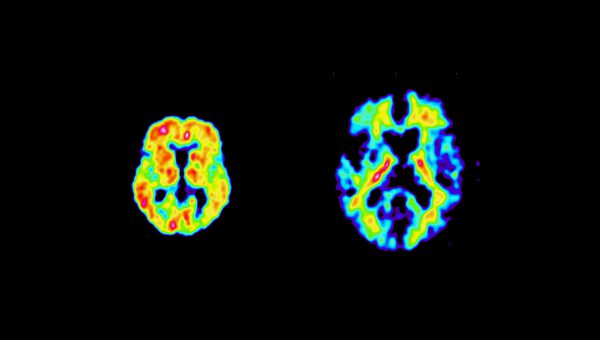Oligomer-Targeting Drug Development Programs
We are dedicated to developing novel disease-modifying treatments to enable patients to live an independent life free from Alzheimer’s disease. Alzinova’s lead candidate, ALZ-101, is in clinical development as a therapeutic vaccine for the treatment of Alzheimer’s. Alzinova’s antibody, ALZ-201, is in preclinical development. The portfolio is generated from the proprietary AβCC peptide™ technology and targets the toxic Aβ oligomers specifically.
ALZ-101
ALZ-101 is a vaccine that stimulates the production of antibodies against the toxic Aβ oligomers. In November 2023, the Company announced top-line results from part A of its phase 1b clinical trial. The full analysis of part A in the study data showed that ALZ-101 has met primary and secondary endpoints with good tolerability, an acceptable safety profile and a high immune responder rate.
Preclinical development
Several clinical setbacks within anti-amyloid methods to treat Alzheimer’s disease have highlighted that non-clinical in vivo efficacy studies in transgenic disease models alone cannot prove a drug’s potential. Alzinova has therefore complemented the early selection process with in vitro and ex vivo pharmacology studies utilizing patient-derived toxic material.
In brief, the selection of ALZ-101 was based on three important criteria:
- Specificity for the CNS-specific oligomeric forms has been demonstrated in vitro.
- Information of potential efficacy has been obtained by assessing the direct toxic effect(s) of brain material, and neutralizing this effect ex vivo.
- Target engagement in the CNS has been demonstrated in vivo using a preclinical efficacy model (transgenic mice) which focused on relevant markers of oligomer-pathology.
This combined information serve as a good indicator of ALZ-101’s potential efficacy.
ALZ-101 has also proven to be immunogenic. It generates an immune response that is not associated with any findings suggestive of systemic toxicity in mice, rabbits and non-human primates. A GLP-compliant toxicology and safety pharmacology study in non-human primates demonstrated that it was clinically well tolerated in this species.
Clinical development
Alzinova has designed a first-in-human (FIH) clinical study to evaluate the safety and immunogenicity of the oligomer-specific therapeutic vaccine ALZ-101. Exploratory endpoints are biomarkers in cerebrospinal fluid (CSF) and serum and preliminary efficacy measured with a package of psychometric tests.
The phase 1b clinical trial of ALZ-101 in patients with early Alzheimer’s disease is a placebo-controlled, randomized, double-blind study. A total of 26 Alzheimer’s patients are enrolled in the study where participants receive four doses of either the ALZ-101 vaccine or placebo. The study started in October 2021 when the first patient was enrolled. The study is looking at two different dose strengths of ALZ-101 over a 20-week treatment period.
In December 2022, the Company announced positive interim data showing continued good safety and tolerability and data suggesting an immune response.
In May 2023 a second interim analysis was performed. The analysis showed positive data with continued good safety and tolerability as well as a clear immunological response, that is, that specific antibodies have been formed. Based on this positive second interim analysis, the Company decided to conduct an extension of the study.
In November 2023, the Company announced top-line results from part A of its phase 1b clinical trial. A first analysis of the study data showed that ALZ-101 has continued good tolerability, an acceptable safety profile and a high immune responder rate. Furthermore, the results showed that patients treated with ALZ-101 responded with antibody levels that increased with the number of doses given.
Full analysis of the dataset from part A of this Phase 1b study confirms the favourable safety and tolerability profile observed in all dose groups and a high frequency of immune response, and that patients treated with ALZ-101 responded with antibody levels that increased with the number of doses given. The analysis also shows that patients dosed with the highest dose of vaccine, 250 μg, had a higher response rate compared to 125 μg, Preparations for a planned phase 2 study are ongoing.
Based on the favourable results, Alzinova applied for an extension of the study to evaluate an additional higher dose, which has now been approved by the regulatory authorities. The extension is made as an open-label part of the study and includes six patients who are treated with 400 μg over a 16-week period with four treatment sessions. The patients will then be followed up after another 4 weeks.
Please return later for more information and updates.
Link to press release about the positive phase 1b results
Link to study design of Phase 1b study in patients with early Alzheimer’s disease
ALZ-201
ALZ-201 is a monoclonal antibody that is specific for the toxic Aβ oligomers. ALZ 201 is currently in preclinical development.
Preclinical development
ALZ-201 was developed using ALZ-101. It is a murine monoclonal antibody of IgG type that is extremely specific for the Aβ42CC oligomers. It completely lacks affinity for monomers, fibrils and all forms of Aβ40. It does not bind the plaques of humans.
Immuodepletion of brain extracts demonstrates that the native Aβ targeted by this antibody is not detectable using Western blots. Despite this, it has a profound effect on the toxicity of the brain extracts, indicating that the amounts of toxic Aβ42 in patient brains are very low.
ALZ-201 is thus a novel antibody with a specificity that differs from known antibodies, and further substantiates that there are oligomer-specific epitopes in full-length Aβ42 that can be targeted with very high specificity without also targeting monomers and fibrils.
Alzinova presents preclinical results demonstrating that the monoclonal ALZ-201 antibody has specificity for the toxic oligomers that are central to the onset and development of Alzheimer’s disease.
The research shows that ALZ-201 has the potential to be “best-in-class” in the clinic with good efficacy and more favourable side-effect profile compared to other candidates.
Learn more
Learn more about the oligomer target in Alzheimer’s disease, our programs and the potential of our unique proprietary AβCC technology.



